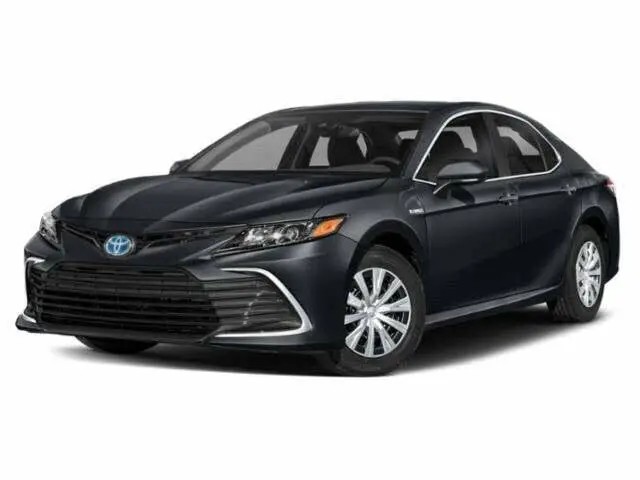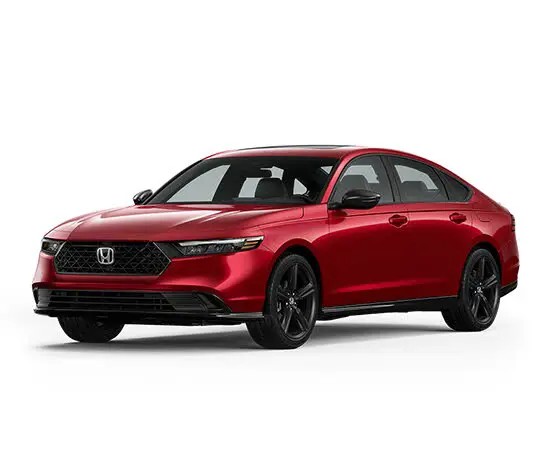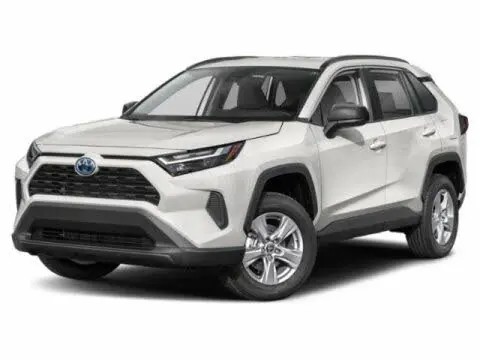In an era where environmental consciousness and economic prudence go hand in hand, choosing a gas efficient car has never been more relevant. As concerns about climate change intensify and fuel costs fluctuate, opting for a vehicle that maximizes miles per gallon (MPG) is not just a smart financial move—it’s a step towards a sustainable future. This guide delves into the world of Gas Efficient Cars, highlighting the top models of 2024 and providing insights to help you make an informed decision.
Understanding Gas Efficiency: More Than Just MPG
Gas efficiency, at its core, is about maximizing the energy derived from fuel. It’s quantified by metrics like miles per gallon (MPG) in the US or liters per 100 kilometers (L/100km) in other regions. A higher MPG or a lower L/100km figure indicates better fuel efficiency, meaning the car can travel further on the same amount of fuel. Understanding this concept is crucial when you’re aiming to reduce your carbon footprint and save money at the pump.
Why Gas Mileage Matters: Your Wallet and the Environment
The significance of gas mileage extends beyond just saving money. Gas efficient cars play a vital role in:
- Reducing Fuel Costs: The most immediate benefit is the savings at the gas station. Better gas mileage directly translates to fewer fill-ups and more money in your pocket over the lifespan of your vehicle.
- Lowering Carbon Emissions: Vehicles are a significant source of greenhouse gases. Gas efficient cars burn less fuel, which means they emit less carbon dioxide (CO2) and other pollutants, contributing to cleaner air and a healthier planet.
- Promoting Energy Independence: By reducing our collective fuel consumption, we lessen our dependence on fossil fuels, contributing to greater energy security and stability.
- Enhancing Vehicle Resale Value: With growing demand for fuel-efficient vehicles, choosing one now can also benefit you in the long run with potentially higher resale value.
How is Fuel Efficiency Measured? The EPA and Standardized Testing
Fuel efficiency ratings are not arbitrary numbers. They are derived from rigorous, standardized testing procedures established by regulatory bodies like the Environmental Protection Agency (EPA) in the United States. These tests simulate real-world driving conditions, encompassing both city and highway scenarios, to provide a composite MPG rating. This standardized approach ensures consistency and allows for fair comparisons between different vehicles.
Beyond the car itself, remember that driving habits and vehicle maintenance are key factors in achieving optimal fuel efficiency. Aggressive driving, characterized by rapid acceleration and hard braking, can drastically reduce MPG. Conversely, smooth acceleration, maintaining a steady speed, and anticipating traffic flow can significantly improve fuel economy.
Regular vehicle maintenance, including timely tune-ups, proper tire inflation, and using the manufacturer-recommended motor oil, also plays a crucial role. A well-maintained car operates more efficiently, maximizing its fuel economy and ensuring long-term savings.
 Drive fuel efficiently to save money and reduce environmental impact. Explore gas efficient car options for 2024.
Drive fuel efficiently to save money and reduce environmental impact. Explore gas efficient car options for 2024.
Key Considerations When Selecting a Gas Efficient Car
Choosing the right gas efficient car involves more than just looking at MPG figures. Several factors should align with your lifestyle, needs, and priorities:
Vehicle Size and Class: Matching Your Needs
The size and type of vehicle you choose significantly impact fuel efficiency. Smaller, lighter vehicles generally offer better gas mileage.
- Compact Cars: Ideal for individuals or small families prioritizing fuel economy and city driving. They are easier to maneuver and park in urban environments.
- Midsize Cars: Offer a balance of space and fuel efficiency, suitable for families needing more passenger and cargo room without sacrificing gas mileage excessively.
- SUVs: Traditionally less fuel-efficient, modern SUVs, especially hybrids, are increasingly offering improved gas mileage while providing versatility and space. Consider hybrid SUV options if you need the utility of an SUV with better fuel economy.
Engine Technology: Hybrid, Electric, and Advanced Combustion Engines
Engine technology is a primary determinant of fuel efficiency.
- Hybrid Vehicles: Combine a gasoline engine with an electric motor and battery. They excel in city driving and stop-and-go traffic, offering significantly better MPG than traditional gasoline cars.
- Electric Vehicles (EVs): Offer zero tailpipe emissions and eliminate gasoline consumption altogether. While not directly “gas efficient,” they are the ultimate in fuel efficiency from an energy perspective, running solely on electricity.
- Advanced Internal Combustion Engines: Technological advancements have made modern gasoline engines more efficient than ever. Features like turbocharging, direct fuel injection, and variable valve timing enhance power and fuel economy in traditional gasoline cars.
Driving Habits and Typical Driving Conditions
Your driving style and where you primarily drive influence real-world fuel efficiency.
- Smooth Driving: Avoiding aggressive acceleration and braking can significantly improve MPG.
- Highway vs. City Driving: Hybrids often shine in city driving due to regenerative braking and electric motor assistance at lower speeds, while highway MPG may be closer to traditional gasoline cars. Consider your dominant driving environment.
- Aerodynamics and Vehicle Weight: Sleek, aerodynamic designs and lighter vehicle weights contribute to better fuel efficiency by reducing drag and the energy needed to move the vehicle.
The Future is Efficient: Trends in Gas Mileage Technology
The automotive industry is in constant pursuit of enhanced fuel efficiency and reduced emissions. Several trends are shaping the future of gas efficient cars:
Innovations in Fuel-Saving Technologies
Automakers are continually innovating to push the boundaries of fuel efficiency:
- Next-Generation Hybrid Systems: More efficient batteries, smarter energy management, and more powerful electric motors are improving hybrid performance and MPG.
- Advancements in Battery Technology: Developments in battery density and charging infrastructure are making electric vehicles more practical and appealing, indirectly driving overall fuel efficiency in the market.
- Lightweight Materials: Increased use of aluminum, carbon fiber, and other lightweight materials is reducing vehicle weight, leading to improved fuel economy.
- Aerodynamic Optimization: Sophisticated aerodynamic designs, active grille shutters, and underbody panels are minimizing air resistance and maximizing MPG.
- Engine Management Systems: Advanced computer controls, cylinder deactivation, and improved transmissions are optimizing engine performance for fuel efficiency.
The Role of Government Regulations and Consumer Behavior
Government regulations and evolving consumer preferences are major drivers of fuel efficiency:
- Stricter Emissions Standards: Governments worldwide are implementing increasingly stringent emissions regulations, pushing automakers to develop cleaner, more fuel-efficient vehicles.
- Fuel Economy Standards: Regulations like CAFE (Corporate Average Fuel Economy) in the US mandate minimum fuel economy levels for automakers, incentivizing innovation.
- Consumer Demand for Efficiency: Growing environmental awareness and fluctuating fuel prices are increasing consumer demand for gas efficient cars, further driving market trends.
- Incentives and Tax Credits: Governments often offer incentives like tax credits and rebates for purchasing fuel-efficient vehicles, making them more accessible to consumers.
Top 11 Gas Efficient Cars for 2024: Category by Category
Let’s explore some of the top gas efficient cars available in 2024, categorized by vehicle class:
Compact Cars Leading in Gas Mileage
1. Toyota Prius: The Prius remains the gold standard for fuel efficiency in the compact car segment. Its hybrid powertrain delivers exceptional MPG, making it ideal for city dwellers and eco-conscious drivers. The 2024 Toyota Prius boasts a sleek redesign and even better fuel economy than previous generations.
 The fuel-efficient 2024 Honda Civic, a top compact car for gas mileage.
The fuel-efficient 2024 Honda Civic, a top compact car for gas mileage.
2. Honda Civic: The Honda Civic consistently ranks high for fuel efficiency in the non-hybrid compact class. Its refined engine and aerodynamic design contribute to impressive MPG, making it a practical and economical choice. The latest Honda Civic models continue to prioritize fuel economy without sacrificing driving enjoyment.
3. Hyundai Ioniq: The Hyundai Ioniq offers a range of fuel-efficient options, including hybrid and plug-in hybrid models. Known for its focus on efficiency, the Ioniq delivers excellent gas mileage and a comfortable ride. The Hyundai Ioniq is a strong contender for those seeking diverse eco-friendly powertrain choices.
4. Volkswagen Golf: The Volkswagen Golf provides a good balance of performance and fuel efficiency in a compact hatchback form. Its turbocharged engine offers spirited driving while maintaining respectable MPG. While perhaps not the absolute leader in fuel economy, the Golf is a well-rounded and efficient compact car.
 The Volkswagen Golf 2024, offering a balance of performance and gas efficiency in the compact car category.
The Volkswagen Golf 2024, offering a balance of performance and gas efficiency in the compact car category.
5. Mazda 3: The Mazda 3 is lauded for its engaging driving dynamics and stylish design, but it also delivers commendable fuel efficiency for a non-hybrid compact car. Mazda’s Skyactiv technology contributes to improved MPG without compromising performance.
Midsize Cars with Exceptional Gas Mileage
6. Toyota Camry Hybrid: The Toyota Camry Hybrid is a standout in the midsize sedan category, offering exceptional fuel economy without sacrificing the space and comfort Camry is known for. Its hybrid powertrain makes it incredibly gas efficient, especially in city driving. The 2024 Toyota Camry Hybrid continues this legacy with impressive MPG figures.
 2024 Toyota Camry Hybrid, a gas efficient midsize sedan with excellent fuel economy ratings.
2024 Toyota Camry Hybrid, a gas efficient midsize sedan with excellent fuel economy ratings.
7. Kia K5 Hybrid: The Kia K5 Hybrid (formerly Optima) is a stylish and fuel-efficient midsize sedan. Its hybrid powertrain provides excellent MPG, and it comes loaded with modern features and a comfortable interior. The Kia K5 Hybrid is a strong contender for those seeking a blend of style, efficiency, and value.
8. Honda Accord Hybrid: The Honda Accord Hybrid rivals the Camry Hybrid in fuel efficiency in the midsize segment. It combines Honda’s reputation for reliability with a highly efficient hybrid system, offering a spacious and comfortable cabin and excellent MPG. The Honda Accord Hybrid remains a top choice for gas-conscious midsize car buyers.
 The Honda Accord Hybrid 2024, a gas-efficient and comfortable midsize car option.
The Honda Accord Hybrid 2024, a gas-efficient and comfortable midsize car option.
SUVs Offering the Best Gas Mileage
9. Ford Escape Hybrid: The Ford Escape Hybrid is a fuel-efficient compact SUV that doesn’t compromise on versatility. Its hybrid powertrain delivers impressive MPG for an SUV, making it a practical and economical choice for families. The Ford Escape Hybrid offers SUV practicality with significantly improved fuel economy.
10. Toyota RAV4 Hybrid: The Toyota RAV4 Hybrid is one of the most popular hybrid SUVs, known for its excellent fuel economy, reliability, and spacious interior. It offers SUV capability with MPG figures that rival many sedans. The Toyota RAV4 Hybrid is a top pick for those wanting a gas-efficient and versatile SUV.
 Toyota RAV4 Hybrid 2024, a gas-efficient SUV with a spacious interior and stylish design.
Toyota RAV4 Hybrid 2024, a gas-efficient SUV with a spacious interior and stylish design.
11. Lexus UX Hybrid: For those seeking luxury and fuel efficiency in a compact SUV, the Lexus UX Hybrid is an excellent option. It delivers impressive MPG in a stylish and well-appointed package, typical of the Lexus brand. The Lexus UX Hybrid provides a premium and fuel-conscious SUV experience.
Maximizing Your Gas Mileage: Driving and Maintenance Tips
Owning a gas efficient car is a great start, but maximizing its fuel economy requires conscious effort and good practices:
Essential Maintenance for Optimal MPG
Regular maintenance is key to keeping your gas efficient car running at its best:
- Maintain Proper Tire Inflation: Underinflated tires increase rolling resistance and reduce fuel economy. Check tire pressure regularly and inflate to the recommended levels.
- Regular Oil Changes: Use the manufacturer-recommended motor oil and adhere to the recommended oil change intervals. Fresh, clean oil reduces engine friction and improves efficiency.
- Air Filter Replacement: A clogged air filter restricts airflow to the engine, reducing performance and fuel economy. Replace the air filter as recommended.
- Regular Tune-Ups: Follow the manufacturer’s recommended service schedule for tune-ups, including spark plug replacement and other maintenance items.
Fuel-Efficient Driving Habits to Adopt
Your driving habits have a significant impact on fuel economy:
- Smooth Acceleration and Braking: Avoid aggressive acceleration and hard braking. Gradual acceleration and gentle braking conserve fuel.
- Maintain a Steady Speed: Use cruise control on highways to maintain a consistent speed, which is more fuel-efficient than fluctuating speeds.
- Avoid Excessive Idling: Idling wastes fuel. If you anticipate stopping for more than a minute, turn off the engine.
- Minimize Air Conditioning Use: Air conditioning can significantly reduce fuel economy, especially in city driving. Use it judiciously and consider using ventilation or recirculation when possible.
- Plan Trips Efficiently: Combine errands into a single trip to reduce cold starts and overall mileage.
Conclusion: Choosing the Best Gas Efficient Car for You in 2024
Selecting a gas efficient car in 2024 is a smart decision for both your wallet and the environment. The top models highlighted here offer a range of choices across different vehicle classes, ensuring there’s a gas efficient option to suit various needs and preferences. Whether you prioritize a compact car, midsize sedan, or SUV, these vehicles demonstrate that fuel efficiency doesn’t have to come at the expense of performance, features, or style. By choosing wisely and adopting fuel-efficient driving habits, you can enjoy significant savings and contribute to a more sustainable automotive future.
[
